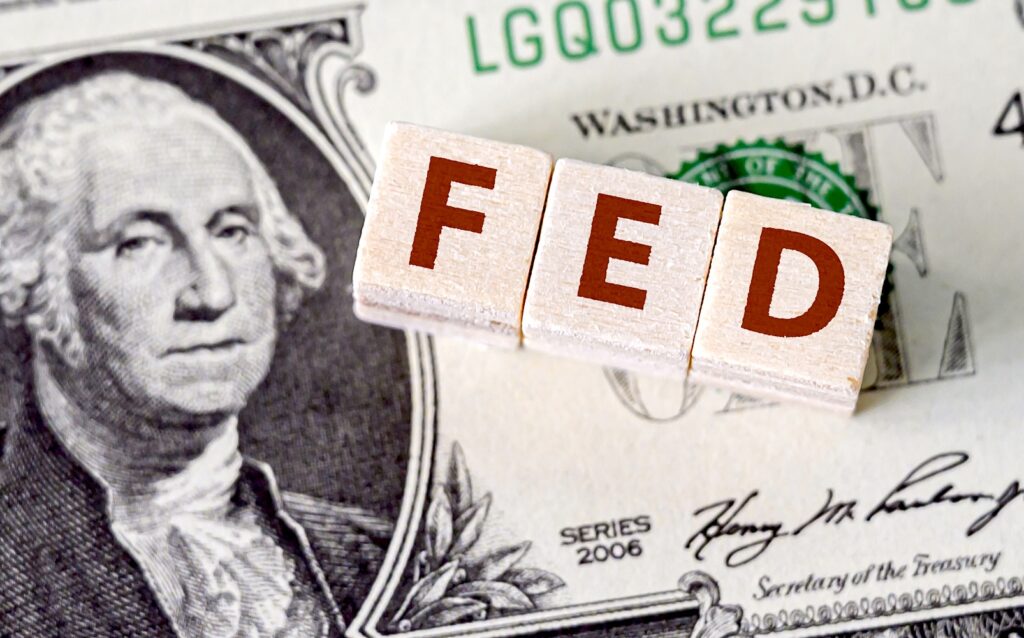Fed rate cut ‘expected,’ economy still ‘teetering on the edge,’ economist says
Interest rates could drop as early as next month after a Federal Reserve announcement Friday, but the economy may need much more help, one economist tells The Lion.
Stocks rallied after Jerome…

Interest rates could drop as early as next month after a Federal Reserve announcement Friday, but the economy may need much more help, one economist tells The Lion.
Stocks rallied after Jerome Powell, the Federal Reserve chairman, indicated that “the time has come for policy to adjust,” regarding interest rates, which are at a 23-year high, and that multiple cuts could be forthcoming. The first cut, which will likely be a quarter of a percent, could come at the Fed’s meeting next month.
Powell has kept rates high to lower inflation, which hit a 40-year peak of 7.1% in 2022. It’s now down to 2.5% but has still not hit the Fed’s target of 2%.
Many economists didn’t foresee the rate cut even a few months ago, but dismal jobs and employment data likely swayed the Fed’s hand.
“The writing is on the wall,” says Aaron Hedlund, chief economist for the Show-Me Institute in St. Louis, a conservative think tank. “The jobs numbers that we got most recently were much weaker than expected, and then there was really big news this past week when the Bureau of Labor Statistics revised downward the job count from last year by over 800,000. (There’s) both those things and then the unemployment rate is rising.”
The anticipated rate cut, which makes the price of borrowing money more affordable, won’t have a major impact on the economy before the election, Hedlund says, and probably isn’t political since both Democrats and Republicans sit on the Fed’s board of governors.
The economy could shift, however, in the unlikely event the Fed announces a rate cut of half a percent or more. Regardless, the state of the economy over the next two months will play a role in the Nov. 5 election.
“For sure if the economy weakens, that does not bode well for Vice President (Kamala) Harris,” he says of the Democratic nominee. A further slowdown would help Trump “because Trump has made the case, I think rightly so, that the policies of the past few years have been a total disaster.
“There’s been a completely pointless explosion of the deficit, you’ve had tepid economic growth at best, decade’s high inflation, shrinking purchasing power – and these things are not because of some mysterious emergence of corporate greed in 2021,” Hedlund says, referencing Harris’ assertion that “greedy” corporations are to blame for rising food prices. “Companies have always wanted to make money.”
He blames the conditions on “a spending spigot that was unleashed in 2021, along with a regulatory clampdown that was anti-work and anti-energy.”
“That’s why inflation’s high,” Hedlund told The Lion. “That’s why it’s impossible to buy a home. That’s why interest rates are high and the Fed has, kind of late to the party, done what it needed to do to bring it back down slowly – but the key is it never needed to be high to begin with. If we had good policies coming out of D.C., inflation could have stayed as low as it was coming into 2021.”
Hedlund blames the Biden-Harris administration and Congress’ decision to “suddenly pour multiple trillions of dollars into the economy” when things were already rebounding after the devastation of Covid in 2020.
“If it was truly necessary, if the economy was truly really weak and in need of all that money, all that stimulus, then you wouldn’t have gotten inflation. But we did get inflation. That is the proof that what they did was wrong-headed.”
For consumers, Hedlund cautions against taking any “rash actions” following the news, and to hope for “pro-growth policies to start next year.” Those include renewing the Trump tax cuts of 2017, which are due to expire at the end of 2025.
“The Trump tax cuts lowered rates for small businesses and individuals and led to an investment boom,” he says. “If you look at the data from 2019, you have historically low poverty rates and historically fast income growth after inflation.”
Harris has not commented directly on extending the Trump tax cuts.
“Big picture, this is an economy that’s kind of teetering on the edge,” Hedlund says, “and it’s teetering on the edge because of bad policy.”



